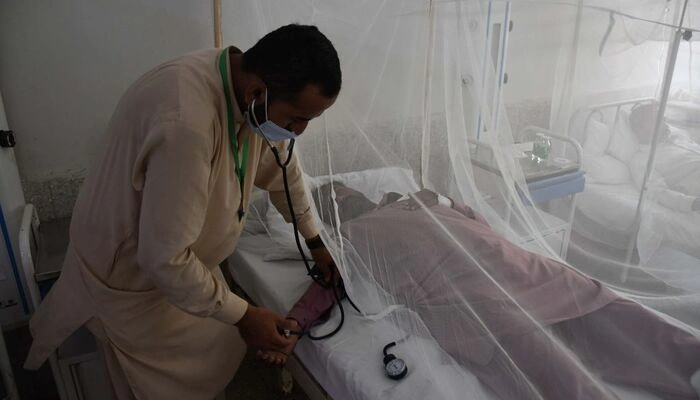Khyber Pakhtunkhwa (KP) is grappling with a sharp rise in mosquito-borne diseases this year, posing a serious public health challenge. The latest report by the KP Health Department highlights alarming increases in both malaria and dengue fever cases across the province.
Malaria Cases Show a Worrisome Increase
The report reveals a 13% surge in malaria cases compared to the previous year. Hospitals across the province admitted 271,344 malaria patients in 2024, significantly higher than the 239,902 cases reported in 2023. This translates to 31,442 additional cases, underscoring the growing threat posed by this mosquito-borne illness.
Dramatic Spike in Dengue Fever Cases
Even more concerning is the dramatic rise in dengue fever cases, with an increase of 176% compared to last year. A total of 5,477 dengue patients were hospitalized in 2024, a sharp contrast to the 1,980 cases recorded in 2023. This steep escalation highlights the urgent need for robust measures to control the spread of dengue in the region.
Contributing Factors to the Surge
Health experts attribute this rise to multiple factors, including favorable weather conditions for mosquito breeding, inadequate public awareness, and limited implementation of preventive measures. Stagnant water, poor waste management, and lack of timely fumigation have created ideal environments for mosquito proliferation, intensifying the situation.
Health Sector Under Pressure
The significant rise in cases has placed immense pressure on the healthcare system in KP. Hospitals are struggling to manage the influx of patients, while the demand for medical supplies and trained personnel continues to grow.
Read: Pakistan Reports Over 20,000 Dengue Cases in 2024
Government Response and Recommendations
The provincial government has acknowledged the issue and is working to address it through public awareness campaigns and enhanced disease surveillance. However, health officials stress the need for preventive strategies, including regular fumigation, proper waste disposal, and promoting the use of mosquito nets and repellents.
On an individual level, citizens are urged to eliminate mosquito breeding sites in and around their homes, such as stagnant water in pots, drains, and open containers. Public cooperation remains critical in combating these diseases.
A Call to Action
The surge in malaria and dengue cases in KP serves as a wake-up call for authorities and citizens alike. Immediate and coordinated efforts are essential to control the spread of these mosquito-borne illnesses and protect public health. Addressing this crisis requires a combination of government intervention, community engagement, and individual responsibility to mitigate the impact of these life-threatening diseases.
Follow Day News on Google News, Instagram, YouTube, Facebook, Whats App, and TikTok for latest updates
